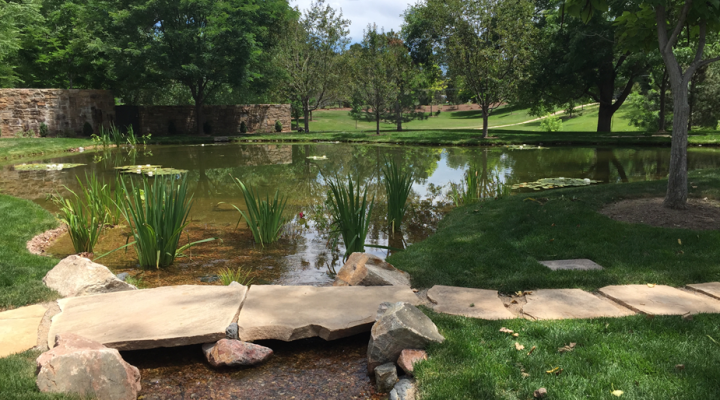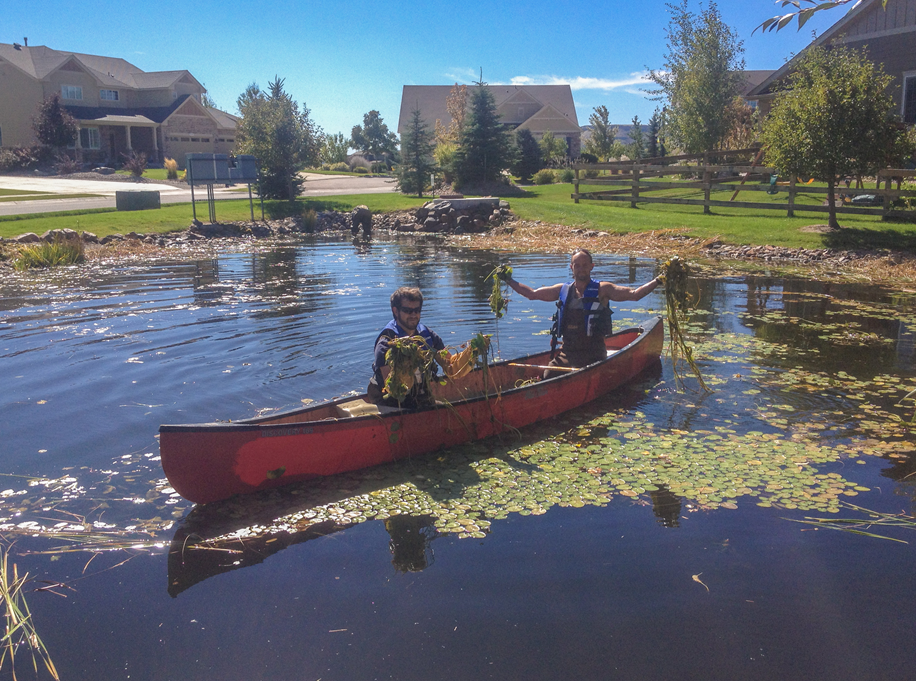
Natural swimming ponds can be a great way to harness the natural principles of nature into a beautiful, functional swimming area for your family and friends. Due to their many benefits, they are steadily increasing in popularity. Natural ponds may seem like a revolutionary concept, potentially leaving you with many questions.
If you are on the fence about adding a natural swimming pond or are simply curious about exactly how this type of system works, read on to have your most frequently asked questions addressed. Then consider if a natural swimming pond could be the right backyard addition for you and yours!
First Things First: What Is a Natural Swimming Pond and How Does It Work?
Natural swimming ponds are type of man-made pool that uses the principles of ecology and sustainability to naturally filter and purify water, eliminating the need for chemical treatments. The pond is made up of two distinct zones: a deep swimming zone and a shallow regeneration zone and usually includes aquatic plants such as reeds, rushes and lilies. The regeneration zone acts as a filter for the swimming zone, using the plants to absorb nitrates and phosphates from the water. The deeper swimming zone is kept clear of aquatic plants, meaning that it is safe for swimming without any risk of weeds or algae getting in the way.
Are Natural Swimming Ponds Sanitary?
Yes, natural swimming ponds are incredibly sanitary. They are designed to replicate the natural water cycle, filtering and purifying water in a completely safe and hygienic way. By using plants to absorb pollutants and microorganisms, the water is kept clean and clear without the need for harsh chemicals or other treatments. Furthermore, the use of biological and mechanical filters are important elements in maintaining safe water conditions. It is also crucial to keep up with seasonal maintenance like trimming plants and skimming leaves or debris off the top of your pond. Ultimately, so long as the pond is designed and maintained correctly, your water will remain hygienic, clean, and safe for swimming.
Is There a Lot of Maintenance Involved?
Natural swimming ponds are incredibly low maintenance, making them an ideal choice for busy homeowners. As a matter of fact, they are often far less maintenance and expense to upkeep than their chlorinated counterparts. The regeneration zone requires regular trimming and pruning of the aquatic plants to prevent them from taking over the swimming area and debris must be regularly skimmed from the surface of the pond to prevent an overgrowth of algae. Other than that, they require very little maintenance and upkeep, making them a great choice for those who want to enjoy a beautiful swimming area without any hassle.

What Are Some of the Benefits?
Natural swimming ponds have many benefits, making them an excellent choice for homeowners looking to add a unique feature to their backyard. Explore them below:
1.) An Eco-friendlier Option Than Traditional Pools
Natural swimming ponds are an eco-friendlier option compared to traditional pools, since they avoid the use of harsh chemicals. Instead, they use natural components like filtration systems, “good bacteria,” and aquatic plants to keep the water clean. This means that they have a much lesser impact on the environment than traditional pools, since runoff is no longer a concern. You also won’t have to worry about harming nearby wildlife, since your water is au naturel.
2.) Cost Efficient
Once your natural swimming pond is established, its maintenance costs will be very low compared to traditional swimming pools. Without the need for harsh chemicals, costly pool pumps, refills, or other treatments, you can save money on chemicals, energy, and even your water bill.
3.) Aesthetic Appeal
Natural swimming ponds also add a unique aesthetic appeal to your backyard or garden. With the addition of aquatic plants, stones, and rocks, you can create a beautiful oasis that adds visual interest and beauty to your outdoor space.
4.) Adds Equity to Your Home
Finally, natural swimming ponds are able to add value to your home. Not only can these features increase the value of your home in the long-term, but they can also attract potential buyers if you’re looking to sell.
Can Natural Swimming Ponds Be Heated?
Yes, it is possible to heat a natural swimming pond. This can be done in one of two ways: by installing a traditional pool heating system, such as an electric heater or by using solar energy. An electric heater is usually the most efficient and cost-effective way to heat a natural swimming pond, as it will provide consistent warmth year-round. Solar energy is also an option, although its effectiveness depends on the amount of sunlight available in your area. No matter which option you choose, make sure that you consult a professional before installing any heating system to ensure that it is installed correctly and safely.
Can Natural Swimming Ponds Be Utilized in All Climate Types?
Yes, natural swimming ponds can be utilized in all climate types. The key is to adapt your system for the climate in which you reside. For example, if you live in a cold climate, you may need to install a special liner that can withstand the cold and make sure that your lines are buried deep below the ground, so they won’t freeze. Depending on how cold it gets, you may be able to continue to run your pump on a low setting or it may be necessary to blow out your system (winterize it) prior to the onset of the winter season. Plant life will also be impacted by where you live. It is important to utilize plants native to your area, so they are able to survive during any temperature extremes that your region may experience throughout the year. However, it is important to note that if you reside in a warmer climate, it is important to make sure that the pond does not become overgrown with algae due to increased sunlight and heat. Ultimately, going with the right types of aquatic plants, shade structures, and filtration systems for your specific region can help keep your water clean and clear no matter the climate.
After learning more about natural swimming ponds, it is obvious they are a great alternative to traditional swimming pools. Armed with this newfound information, are you ready to take the plunge and invest in a natural swimming pond for your backyard!?
Leave a Reply